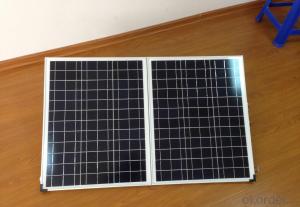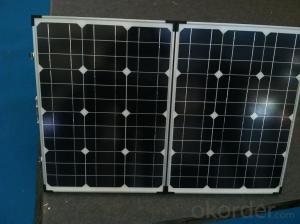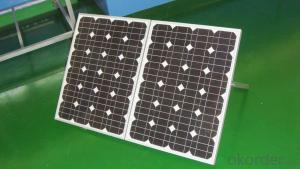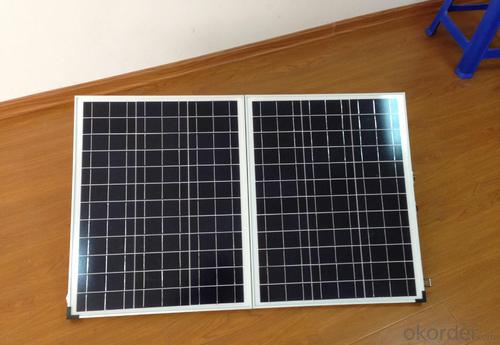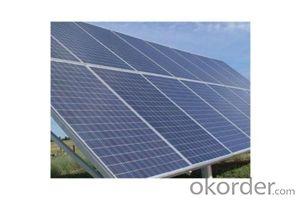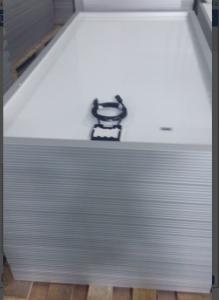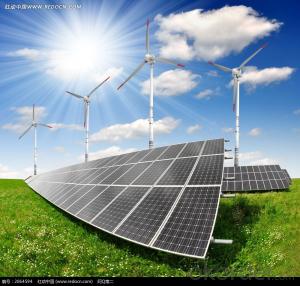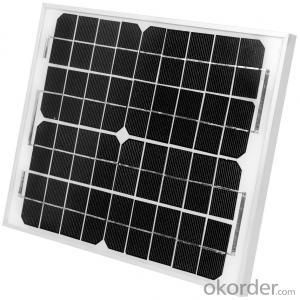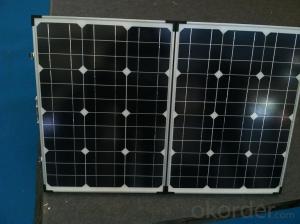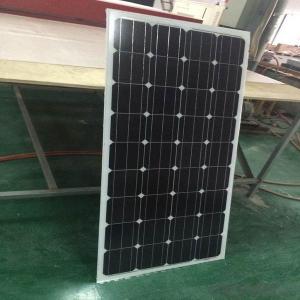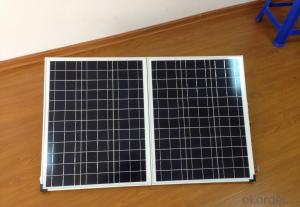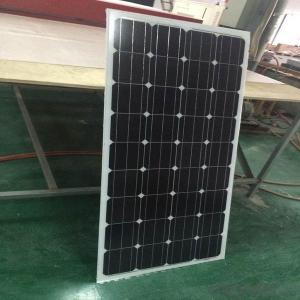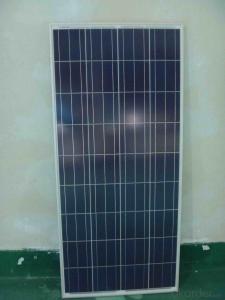Oupes Solar Panels - Mono 10W Solar Panels Made in China for Sale
- Loading Port:
- Shanghai
- Payment Terms:
- TT OR LC
- Min Order Qty:
- 10000 watt
- Supply Capability:
- 1000000 watt/month
OKorder Service Pledge
OKorder Financial Service
You Might Also Like
Specification
Product Description
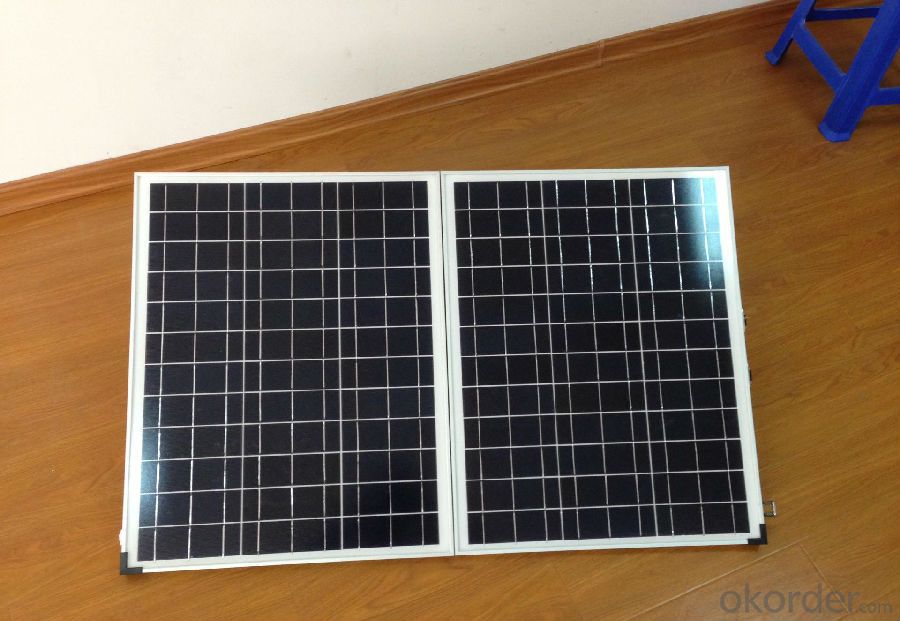 Specifications:
Specifications:
| Rated Max.Power | 10W |
| Rated Voltage: | 17.5 V |
| Open Circuit Voltage: | 21.6V |
| Short Circuit Current: | 0.74A |
| Rated circuit current: | 0.65A |
| Max.System Voltage: | 1000V |
| Dimensions: | 345X285X17 |
Packaging:
Carton, or custom
Advantages
1.Long Service Life
2.High Efficiency Solar Cells
3.Special Aluminum Frame Design
4.High Transmission, Low Iron Tempered Glass
5.Advanced Cell Encapsulation
Solar Panel Application:
1. Solar power station, field operation some huge engineer construction;
2. Living house and home building;
3. Office building, factory and warehouse;
4. other industrial and commercial applications.
FAQ:
1.Price per watt?
It depends on the quantity, delivery date and payment terms.
2.Parameter of the module?
We have different series of panels in different output, both c-si and a-si. please take the specification sheet for your reference.
3.Can you provide the peripheral products of the solar panels, such as the battery, controller etc.?
We have two companies(CNBM International & CNBM engineering Co.) with different approaches. We can supply not only the solar module but also Solar Cells, off grid solar system, even service with on grid plant.
4.Warranty policy?
Our product performance guarantees for 25 years
• 12 years guarantee for workmanship
• Timeliness of delivery
• Quality Products certified (TÜV, UL, CE, ISO)
5.Lead time?
In 3 days after purchasing, we will arrange the factory delivery ASAP. The specific time of receiving is related to the state and position of customers. Commonly 7 to 10 working days can be served.
- Q: If we invest billions in green energy and put up thousands of square miles of black panels that give off radiant heat couldn't that significantly cause more warming, not to mention the energy required to even make them?
- Essentially, solar panels are 'warming neutral'. They absorb energy that would otherwise have heated whatever was behind them, thus have a local cooling effect. This is balanced by the generation of heat when the electricity is used to power, say, a hoover, TV, computer etc, also from 'transmission losses' through the national grid network. Good answers from Claire and Linlyons, bizarre answer from Jim! Tomcat may have a point though...
- Q: Can solar panels be used for charging electric bicycles?
- Yes, solar panels can be used for charging electric bicycles. By connecting the solar panels to a charge controller and then to the electric bicycle's battery, the energy from the sun can be converted into electrical energy to charge the bike's battery. This allows for a sustainable and renewable way of charging electric bicycles.
- Q: Why can't they put solar-panels on the blades and sides of the 300-500 foot tall turbines? Wouldn't this increase effeciency? Therefore, boosting pay-back time, profits, energy-output?
- Good to know someone is thinking and coming up with original ideas, so thanks for contributing... Put a large powerful solar collector on the end of the turbine too i.e. facing the sky! Far as I know, solar works on day-light (doesn't have to face the sun). So your idea is not to be put down. Metal blade turbines - are heavy - wooden windmills - heavy... so some added weight to the wind-turbine's paddles would be OK robably. Great if solar device not made of glass (so unbreakable). I think panels on the roof are old hat...
- Q: Can solar panels be installed on a car or electric vehicle?
- Yes, solar panels can be installed on a car or electric vehicle. These panels can generate electricity by harnessing sunlight and can be used to power certain components of the vehicle, such as the battery or air conditioning, reducing reliance on the main power source. However, due to limited surface area on cars, the amount of power generated may be relatively small compared to the vehicle's overall energy needs.
- Q: How do solar panels affect satellite dish reception?
- Solar panels can potentially interfere with satellite dish reception if they obstruct the line of sight between the dish and the satellite. However, modern satellite technology and proper positioning of both the panels and the dish can often mitigate any negative impact on reception.
- Q: If not how do they give power to a house/a company?
- No they don't have an outlet. The wires attached to the solar panel can be attached to say a battery and keep it charged during day even during.use. At night you use battery power.
- Q: I'm making a model of a solar photovoltaic tower for a school project. I need a way to store energy, and we thought about using capacitors (mainly because of our somewhat limited funding). The tower will have a small photovoltaic panel (around the size of a laptop keyboard with number pad) and some (around 50) quot;heliostats(just the mirrors, no moving parts). What kind of capacitors should i use? and would a capacitor bank be better? i am getting confused with all those uF, pF and can't see the difference.Thanx in advance
- Solar Capacitor
- Q: What is the maintenance cost of solar panels?
- The maintenance cost of solar panels is generally low. Routine maintenance such as cleaning the panels and checking for any damage or debris is recommended, which can be done by the owner or a professional. Additionally, occasional inspections and repairs may be required, but these costs are minimal compared to the long-term benefits of using solar energy.
- Q: Can solar panels be installed on bridges or highways?
- Yes, solar panels can be installed on bridges or highways. In fact, many countries have started implementing solar panels on such structures to harness solar energy and generate electricity. This integration of renewable energy technology with infrastructure not only helps produce clean energy but also optimizes space utilization and promotes sustainability.
- Q: Can solar panels be installed on boats or RVs?
- Yes, solar panels can be installed on boats or RVs. In fact, solar panels are a popular choice for both boats and RVs as they provide a sustainable and reliable source of electricity while on the move.
Send your message to us
Oupes Solar Panels - Mono 10W Solar Panels Made in China for Sale
- Loading Port:
- Shanghai
- Payment Terms:
- TT OR LC
- Min Order Qty:
- 10000 watt
- Supply Capability:
- 1000000 watt/month
OKorder Service Pledge
OKorder Financial Service
Similar products
Hot products
Hot Searches
Related keywords
